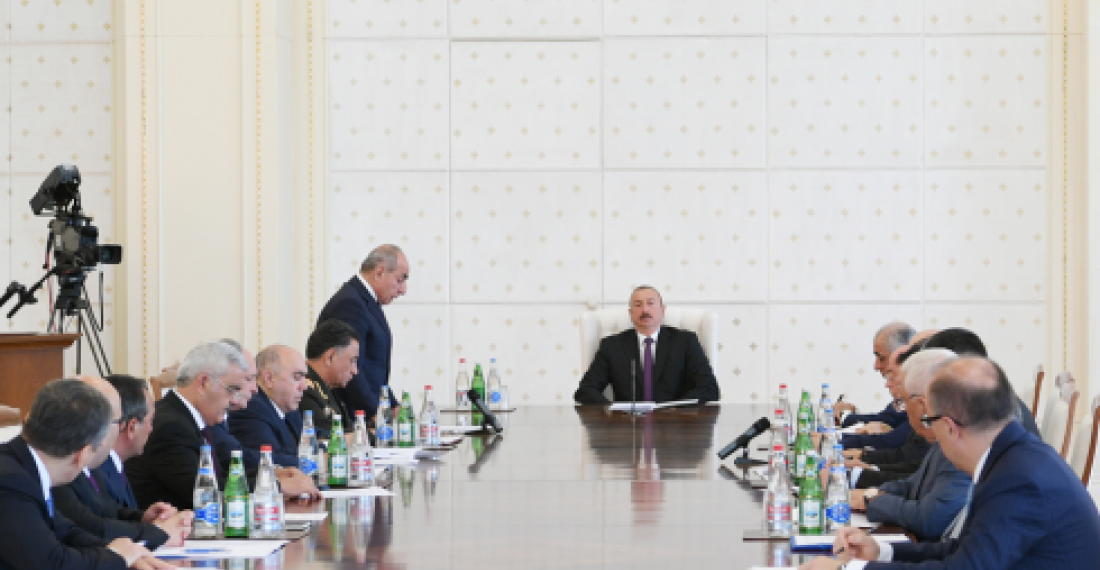Azerbaijani President Ilham Aliyev publicly rebuked officials for failures in the country's energy system following the incident early Tuesday night which left the capital city, Baku, and most of the regions of Azerbaijan without electricity. In the incident an explosion occured in the Minzachevir Power Plant which caused an outage throughout the whole energy grid of the country. Electricity supplies were cut twice, the second time during daytime resulting in many people being stranded in the Baku Metro system and in lifts.
On Wednesday, the national state television channel, Az TV, televised a meeting that Aliyev had with officials to discuss the incident, The President praised the work of the Ministry of Emergency Situations and other agencies for their response to the incident but had harsh words for the leadership of the state energy company Azerenerji. The president was seen interrupting the head of the enterprise, Etibar Pirverdiyevm who was trying to explain what happened. Piverdiyev during the meeting apologised for the incident and tried to explain the work of restructuring that had been going on for the last fifteen years. However he was abruptly interrupted by the President."We know what work was carried out in the last 15 years, You tell us why the country is plunged in darkness". asked the president. Shortly afterwards Aliyev again interrupted the official saying, "You have to be ashamed of yourself in front of the people and of the country. In such a heat you made a mockery of the people. Old men, women and children, and sick people were stuck in the subway or in lifts, You have caused enourmous damage to the country's economy". The president dismissed the official's claim that the incident was caused by hot weather, and said that a full investigation, with the participation of foreign experts will take place.
President Aliyev also rebuked the Minister of Health for the lack of generators in hospitals.
Concluding the meeting, President Aliyev said "This issue creates very serious questions that should be studied very seriously. As a result of this accident, people suffered greatly from the heat, and the economy suffered greatly. It is true that both the first and second times the energy supply was restored within a few hours as a result of operative measures. However, these accidents should not occur, and if they happen, it should not lead to such consequences. No country in the world has been insured from accident. However, the accident must be local. The accident that took place at one station had a great impact on our entire energy system. Therefore, I would like to say that a very serious investigation should be carried out, the perpetrators must be brought to justice, and an action plan should be prepared so that we can protect ourselves from these accidents and their consequences in the future."
source:commonspace.eu with agencies
photo: President Aliyev of Azerbaijan chaired a meeting of officials on Wednesday (5 July) following an incident at the country's main power plant which left most of the country in darkness.







